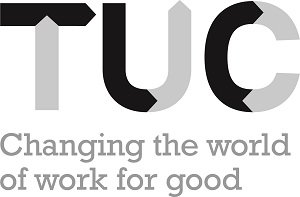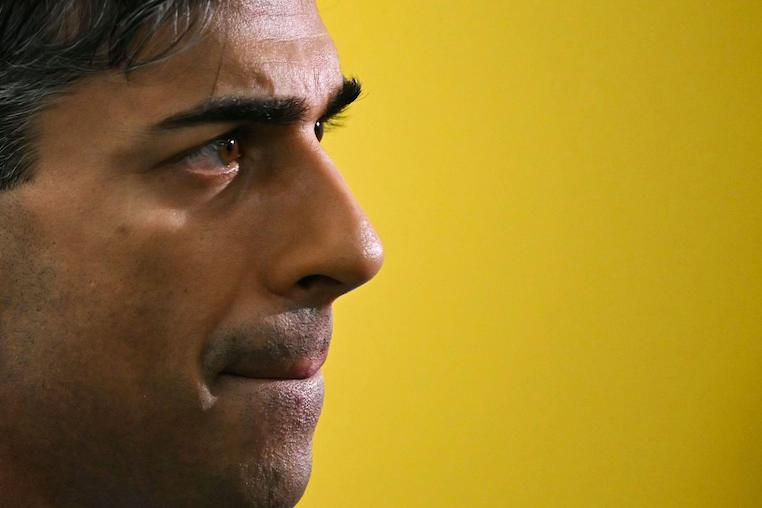Where is euthanasia legal?
Since the start of the Twenty First Century, there have been moves to legalise assisted dying for terminally ill people in a number of countries around the world:
America
In America, a number of States now permit assisted dying such that 100 million Americans now have that choice. The practice first became legal in Oregon in 1997, and has more recently become permissible in Washington, Vermont, Montana, the District of Columbia, California, Colorado, Hawaii, New Jersey and Maine.
Canada
In February 2015, the Supreme Court of Canada struck down a ban on assisted dying. The court decreed that it violated the provisions of the Canadian Charter of Rights and Freedoms and that a regulated regime would protect vulnerable people. It gave the Canadian Parliament one year to change the law. Canada became the first Commonwealth country to legalise assisted dying when changing their law in June 2016.
Australia
Victoria became the first Australian state to legalise assisted dying for terminally ill people in June 2019. Western Australia voted to legalise a similar bill in December 2019.


New Zealand
A national referendum was held on assisted dying in October 2020, and proposals for assisted dying obtained the support of 65.1% of the public. The associated change in the law to permit ‘assisted dying’ comes into force in November 2021.

In 2020, 65% of the public in New Zealand voted to legalise euthanasia in a national referendum.
Benelux
The law supports assisted dying across the Benelux countries. The Belgian Act on Euthanasia was passed in May 2002 and applies to adults who are in a “futile medical condition of constant and unbearable physical or mental suffering that cannot be alleviated”.
In February 2008, the Luxembourg Parliament approved a Law on the Right to Die with Dignity.
The Netherlands introduced assisted dying legislation in 2002. Patients who have an incurable condition, face unbearable suffering and are mentally competent, may be eligible for voluntary euthanasia or assisted dying. Each year there are approximately 3,500 cases of assisted dying or voluntary euthanasia in the Netherlands.
Switzerland
Voluntary euthanasia is forbidden in Switzerland. However, Article 115 of the Swiss Penal Code exempts people who assist someone to commit suicide, if they act with entirely honourable motives.
Spain
In March 2021, the Spanish Parliament passed a law to legalise euthanasia, again allowing people to end their own life in certain circumstances.
Will the UK be next in legalising assisted dying?
Recent opinion polls show strong public support for proposals to reform in the law.
Indeed public feelings on this particular issue appear far more weighted to one side of the argument than on many other contemporary political matters.
A poll conducted by the polling organisation You Gov in October 2020 showed 76% of the public supported the Dignity in Dying Proposals, with just 9% opposed to the proposals, and 15% undecided.
In an attempt to cast religious leaders and other opponents of ‘assisted dying’ as being out of step with wider public opinion, campaigners cite polling data which shows that 79% of religious people, and 86% of those with a disability, support a change to the law in relation to assisted dying.
Dignity in Dying suggest that 44% of people would currently break the law, and risk 14 years in prison, to compassionately help a suffering loved one, die.
In April 2023, France’s government said it would consider making euthanasia legal, with a draft bill set to be produced by the end of summer 2023. A citizens’ convention in France has recently voted on legalising ‘assisted dying’, with a majority of 76 per cent.
What are the proposals for euthanasia in the UK?
Campaigners in the UK are calling for a change in the law to mirror that which is in place in a number of American states, such as California.
These proposals for voluntary euthanasia, championed by groups such as Dignity in Dying, centre on how a dying person, often in unbearable suffering, should have the right to decide where and when they will die. They are specifically limited to terminally ill and mentally competent adults.
They require the dying person to end their own life rather than anyone else do it for them; include a waiting time period to give dying people time to reflect on their decision; allow the dying person to die at home; and require an assessment by doctors and a High Court judge.
Assisted dying and the British Parliament
The UK Government maintains that it has no plans to alter the law in relation to assisted dying.
As has previously been the case with other moral issues such as capital punishment and abortion, the Government sees the ‘assisted dying’ debate to be a matter of conscience, and therefore an issue exclusively for Parliament and a ‘free vote’ amongst MPs.
Given the recent moves by other countries across the world to legalise ‘assisted dying’ for the terminally ill, there is increasingly interest as to whether the House of Commons might now act to reflect domestic public support for a similar change in the law in the United Kingdom.
The Houses of Parliament have discussed the issue before.
In 2004, Lord Joffe introduced an ‘Assisted Dying for the Terminally Ill’ Bill in the House of Lords. However following a seven hour debate, his bill was defeated by 148 votes to 100, before even been given the chance to be considered by the House of Commons.
In 2015, the House of Commons considered the Assisted Dying Bill, brought forward by Rob Marris MP. The Bill would have allowed an individual, who had been diagnosed by two doctors to be terminally ill and reasonably expected to have six months or less to live, to request assistance with ending their life. To be eligible, the person needed to be resident in England or Wales and aged over 18.
Marris argued that his proposed legislation was about ‘ensuring peaceful death’, but his proposals were strongly rejected by fellow MPs, with 330 voting against and just 118 voting in favour.
Since the issue was last voted upon in the House of Commons in 2015, there have been two subsequent General Elections (2017 and 2019), during which the individual composition of the House of Commons has changed considerably. Allied to the wider changes in attitudes and the decisions of other legislatures around the world, the all Party Parliamentary Group for Choice at the End of Life has speculated that the British Parliament might in the future entertain a limited change in the law around ‘assisted dying’.
In October 2021, the cross bencher Baroness Meacher attempted to introduce an assisted dying bill in the House of Lords.
Lords reflect on assisted dying in emotionally-charged debate
Pros and Cons – The case for legalising ‘assisted dying’
The arguments commonly advanced around permitting ‘assisted dying’ can generally be categorised as falling into three areas: the compassionate case for reducing suffering, the problems caused by the current legal regime, and on grounds of individual liberty.
Compassionate grounds for reducing suffering
Campaigners for assisted dying argue that when death is inevitable, suffering should not be. Their argument is that, alongside good care, dying people deserve the choice to ‘control the timing and manner of their death’ in order that they are able to minimize their own suffering.
Given the significance of death within the course of human life, and given that people have the right to make events in their lives as good as possible, so it is argued in its most simplest terms, that people should also have the same rights when it comes to their death.
Where the dying process is painful and unpleasant, as in the case of a number of terminal illnesses, it is argued people should have the right to shorten that process. Euthanasia is thereby presented as the means through which the dying are able to have a better death, at a time of their own choosing.
Those opposed to a reform in the law argue that ongoing developments in palliative sedation reduce the case for assisted dying. However, ‘assisted dying’ campaigners point to how not all patients are able to have their pain relieved during the terminal phase of their illness.
Moreover it argued that while people may be grateful for good palliative care up to a certain point in their disease, campaigners point to how some people would prefer to have the choice to die while they are fully alert and able to say goodbye to their family, potentially in their own home, rather than with a lack of dignity as a result of being semi-anaesthetised on drugs, hooked up to machines in a medical establishment.
Euthanasia happens – so better to make it legal and properly regulated
Campaigners for legal reform around euthanasia law also argue that euthanasia already happens in practice, and that the current legal regime just drives people into ‘mercy killing’ that involves unsafe and unacceptable means. They argue, that should people have access to proven and safe ways to control their death – under supervision in their own homes, then these other alternatives would not happen.
With ‘assisted dying’ legal in other parts of the world, some British nationals, keen to avoid suffering in the final stages of their life, currently chose to travel abroad. Attention is drawn to the plight of a number of British people each year who, despite being unwell, and in the face of the real possibility of criminal sanctions for their relatives, chose to travel to the ‘Dignitas’ clinic in Switzerland. Campaigners claim that the law forces dying people to travel abroad earlier than they would otherwise choose, because of a fear that they will not be able to make the journey later, when they are more unwell
Given that the cost of travelling abroad to die is estimated at many thousands of pounds – this option is currently the preserve of the wealthy. It is argued that in the UK, with its tradition of providing free and compassionate healthcare, driving a terminally ill patient into such expensive travels abroad is both cruel and inappropriate.
The campaign group ‘Dignity in Dying’ also point to research that shows that some 300 suicides in England each year currently involve a person with a terminal illness. Again, they argue that the current legal framework causes people to take their lives behind closed doors, earlier than they would otherwise need to do so, and in an uncontrolled manner, which makes the dying person’s situation worse.
An individual’s right to choose
Finally, supporters of ‘assisted dying’ argue that the right to die is a private matter, and that if there is no harm to others, neither the state nor other people, have any right to interfere in a person’s private choice.
Libertarians argue that human beings are independent biological entities. Accordingly people should have the right to take and carry out decisions about themselves, particularly in regard to decisions around their own bodies and lives. In this context, a person’s right to avoid physical suffering, is equated to being a fundamental part of their personal freedom.
Opponents of assisted dying take issue with the argument that assisted dying is a private act. Some argue that a person can simply be wrong about what they feel is in their best interests. Others point to how the process of assisted dying has wider effects beyond the person themselves, including on their family and the medical profession. Some religious leaders further maintain that life is bestowed by god, and regardless of the circumstances, it is therefore not something that a person should be able to curtail, through a premature act.
In response to these arguments, those who support legalising a regulated form of ‘assisted dying’, argue that a change in the law places no requirements on those with belief systems opposed to the concept, to opt for voluntary euthanasia themselves. In contrast, dying people who wish to exercise this choice for themselves, so to minimize their own suffering, are currently denied the right to do so, because a different set of belief systems are imposed upon them by others.
Pros and Cons – The arguments made against assisted dying
Arguments made by opponents of assisted dying can be broadly categorised into three main areas: religious objections; questions about consent; and concern around the wider impacts of euthanasia.
Religious objections
Many religions, notably Christianity, do not recognise the so called ‘right to die’, believing instead that life is a divine gift. It is argued that every human being is the creation of God, and that this imposes certain limits on a person’s freedom of action. In essence, a person’s life is thus not theirs for them to end as they see fit. And just as a number of religious groups regard suicide as a sin, so euthanasia is similarly positioned as something that weakens a society’s respect for the sanctity of life.
Furthermore, some religious figures suggest that suffering, however unbearable, may have value. It is advanced that suffering can have a place in God’s plan, in that it allows the sufferer to share in Christ’s agony and his redeeming sacrifice. In the 1980s, the then Pope, John Paul II, stated that “down through the centuries and generations it has been seen that in suffering, there is concealed a particular power that draws a person interiorly close to Christ, a special grace”.
In response to these religious arguments, supporters of ‘assisted dying’ would argue that a change in the law does not require Christians or other religious groups to end their lives through an assisted dying process. In the UK, which is now a majority secular (non religious country), a number of humanist campaigners, argue that it totally inappropriate for a small minority of religious leaders to try and enforce their opinions on the wider population through law.
It is also important to note that these views are not shared by all religious people, including the South African Archbishop Desmond Tutu. Polls have also suggested that, contrary to the views espoused by church leaders, some 79% of religious people in the UK, support the idea of regulated ‘assisted dying’ for the terminally ill.
Questions around consent
The second body of argument marshalled against ‘assisted dying’ revolves around the issue of consent.
It is argued that even if ‘assisted dying’ is limited to those diagnosed with a terminal illness, then that diagnosis might still be wrong, or the prognosis of how quickly the disease will progress, might be mistaken. Some opponents of legal reform suggest that periods of pain might be temporary, and that better alternatives in terms of medical care and the treatment of suffering may be available.
Allied to these concerns around consent, campaigners express concerns that a person’s request for assisted dying may be a temporary ‘cry for help’, that they may be depressed, or confused. They argue the option of euthanasia may lead people to prematurely end their lives for the wrong reason, as the person feels that they are becoming a burden on others, or worse, they are pressured to feel this by their relatives for reasons not related to their own welfare.
Campaigners for ‘assisted dying’ appear to accept a number of these concerns.
However they argue, that these arguments relate to the need for the process to be strictly regulated, and limited to particular situations and specific circumstances. Supporters of ‘assisted dying’ argue that the legal framework needs to properly account for these concerns, but they should not be used as reasons to prevent assisted dying being available.
Wider considerations around the impact of euthanasia
Thirdly, a number of wider concerns are expressed about the implications of a change in the law to support assisted dying for the terminally ill.
Opponents of euthanasia argue that the issue is too often viewed from the viewpoint of the person who wants to die, when the act of euthanasia affects others, such as their family, medical profession, and those in a similar position, who may now feel pressured by the decision of other patients. They also point to continuing improvements in pain relief, hospice care, and end of life medical treatment.
This has led campaigners for assisted dying to respond by arguing that a medical physician who do not wish to support dying people to control their own death should be protected in law from having to be involved in the process.
Opponents of ‘assisted dying’ also argue that a change in the legal framework risks conveying uncomfortable messages to society as a whole, such as, that it is better to be ‘dead than sick’. Concerns are also expressed as to how the emergence of assisted dying options might impact on the availability and quality of palliative care, not least because health systems may want to encourage assisted dying as a way of dealing with ‘dying’ patients. It is also suggested that assisted dying undermines medical ethics and the commitment of doctors and nurses to saving lives.
Some opponents of assisted dying also occasionally argue that any change in the law in this area risks a wider step down a slippery slope to involuntary euthanasia. However, with their motivation grounded in the compassionate alleviation of suffering, and in a further indication of the passions typically involved in debates around this issue, such a claim is vehemently and often angrily refuted by ‘assisted dying’ campaigners. They point to how the proposed process would be strictly regulated, involving a doctor, a judge, and the final act being undertaken by the person themselves.
The current legal position in the UK
In law, euthanasia has no special legal position in the United Kingdom, and cases of euthanasia are treated by the legal system as murder or manslaughter. The Suicide Act 1961 makes a specific offence of ‘criminal liability for complicity in another’s suicide’, while declaring suicide itself to be legal.
An important distinction in UK law exists between active voluntary euthanasia and passive euthanasia. Since the Bland ruling of 1993, ‘assisted suicides’, which involve ‘omissions’ that are principally the removal of life-saving care are not illegal. However, active euthanasia, involving taking action to end another’s life, even with their consent, is illegal.
In practice, the prosecution of active euthanasia in the UK is distinct from other cases of unlawful killing. The consent of the Attorney General to prosecute is sought, and sentencing is influenced by the often desperate and harrowing circumstances of the individual cases involved.
In recent years, there have been several legal challenges to the offence of assisted suicide, particularly from disabled or terminally ill people who are unable to end their lives without the assistance of others.
The first of these high profile cases involved Diane Pretty in 2002. Mrs Pretty was dying of motor neurone disease and wanted her husband to end her life without being prosecuted for aiding and abetting suicide. Had the case been successful, it would have effectively struck down the legal ban on assisted suicide in the UK. However Mrs Pretty was unsuccessful because the court judgment, in recognition of the complex moral considerations involved, deferred to the democratic will of Parliament, as enshrined in the legal text of the law itself.
In July 2009, Debbie Purdy obtained a House of Lords ruling ordering the Director of Public Prosecutions (who was then Sir Keir Starmer, the current leader of the Labour Party) to formulate an offence-specific policy, setting out the public interest factors the Crown Prosecution Service would consider when deciding whether to prosecute assisted suicide offences. The DPP’s policy was published in February 2010 following a public consultation.
In June 2014, the issue of assisted suicide was considered by the UK’s Supreme Court, during a euthanasia case in which several claimants sought a declaration that the current law on assisted suicide was incompatible with their right to a private life under Article 8 of the European Convention on Human Rights. The Supreme Court decided against making such a declaration by a majority of seven to two, arguing that changes on the law in this area should again be made by Parliament.
Quotes
“The law is an absolute mess and totally lacks compassion. It is so urgently time for a change” – Lord Falconer (Lord Chancellor in the Blair Government, speaking in 2020)
“I believe that decisions about the timing and manner of death belong to the individual as a human right. I believe it is wrong to withhold medical methods of terminating life painlessly and swiftly when an individual has a rational and clear-minded sustained wish to end his or her life.” – Professor A C Grayling, Dignity in Dying Patron
“It is suffering, more than anything else, which clears the way for the grace which transforms human souls.” – Pope John Paul II, 1984
“I think those who have a terminal illness and are in great pain should have the right to choose to end their own life, and those that help them should be free from prosecution” – Stephen Hawking, 2013
“Not all moral issues have the same moral weight as abortion and euthanasia. There may be legitimate diversity of opinion even among Catholics about waging war and applying the death penalty, but not… with regard to abortion and euthanasia” -Pope Benedict XVI, writing in 2004.
“The right to die can so easily become the duty to die” – Peter Saunders, Care not Killing Alliance, 2016
“A part of eugenic politics would finally land us in an extensive use of the lethal chamber. A great many people would have to be put out of existence simply because it wastes other people’s time to look after them” – George Bernard Shaw
“Whose life is it, anyway?”….”If I cannot give consent to my own death, whose body is this? Who owns my life?” – Sue Rodriguez, Canadian right to die activist, who was diagnosed with amyotrophic lateral sclerosis, speaking in a video taped address to the Canadian Parliament, 1992.
“I think that given the very limited nature of these proposals, that it would be for someone who is within six months of the end of their life, with very strong safeguards, the decision being made by a high court judge, by two doctors – I think those limited proposals may command the support of parliament in the next four years.” – Andrew Mitchell MP – 2020
“Just as I have argued firmly for compassion and fairness in life, I believe that terminally ill people should be treated with the same compassion and fairness when it comes to their deaths”…”Dying people should have the right to choose how and when they leave Mother Earth. I believe that, alongside the wonderful palliative care that exists, their choices should include a dignified assisted death.” – Archbishop, Desmond Tutu, 2016
From beyond the grave: Patient attacks ‘cowardice’ of British politicians










